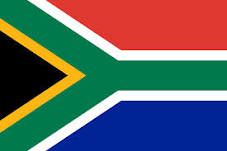Addiction
Tragic Reality of Substance Abuse in South Africa
The number of child addicts in South Africa is at an all-time high
Posted August 5, 2014

South Africa, a giant in the global drug trade, is at breaking point with the number of child addicts reaching an all-time high. Research has found that substance abuse in South Africa is double that of the global average and ranked in the top 10 countries concerning the amount of alcohol being consumed each year. The Central Drug Authority (CDA) of South Africa gathered statistics from June 2010 through March 2011 indicating the alarming rise and consequences of alcohol and drug use.
Marijuana, crystal meth, heroin, crack cocaine and methamphetamines are taking over the streets and injecting a new generation of deprived children with a life of addiction; alcohol remains the most common drug of abuse. More than 6,000 people, many of them children, die because of alcohol every year; then add the sad fact that South Africa has the highest reported incidence of Fetal Alcohol Syndrome in the world. Alcohol affects 17.5 million South Africans. The use of drugs among teenagers increased by 1100 percent from 1997 to 2007, and is still increasing. This is alarming by any standard.
The continent of Africa is increasingly becoming vulnerable to the drug trade and organized crime. The international community needs to make necessary resources available to monitor the rising drug situation. Illicit drugs continue to jeopardize the health and welfare of people throughout the world and they represent a clear threat to the stability and security of entire regions.
The latest drug trafficking trends show that Africa is a vulnerable transit continent for both cocaine and heroin. The spillover effect of the increased trafficking of drugs through Africa on drug use in African countries is a matter of concern, although to study and document the trend remains a challenge. Gaps in availability of reliable data on all aspects of the drug phenomenon from many regions continues to limit the understanding of the drug market dynamics on the African continent, posing further challenges for the development of appropriate prevention and treatment interventions.
This destructive cycle must be halted in order to protect the right of people to healthy communities. The problem is growing worse while nations are without the resources to provide rehabilitation. There are whole regions where evidence-based drug dependence treatment and care are still not available or accessible. The National Drug Master Plan (2013 to 2017), is being implemented as South Africa’s blueprint for preventing and reducing alcohol and substance abuse and its associated social and economic consequences on South African society. Perhaps South Africa will be a model for other nations.
I will be in South Africa later this month to speak at the World Congress for Psychotherapy in Durban and at hospitals in Cape Town. I will share many of the latest evidence-based treatment techniques and hope to be part of the solution to South Africa’s growing substance abuse problem.
***
Constance Scharff is the Senior Addiction Research Fellow and Director of Addiction Research for Cliffside Malibu. She is also the coauthor of the Amazon.com bestselling book Ending Addiction for Good with Richard Taite.


